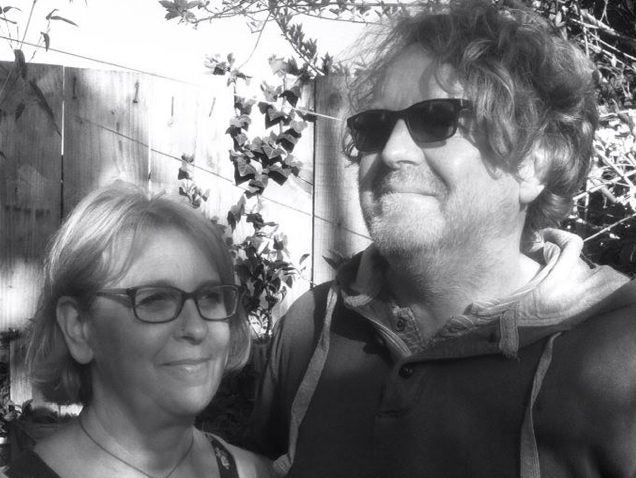
The man behind a citizen media website celebrating its sixth anniversary has said allowing non-journalists to write the news they want to see makes the media more democratic and helps hold power to account.
Dorset Eye allows anyone to register and submit articles on any subject of their choosing, akin to Wikipedia, letting readers determine what they deem to be newsworthy.
This can include topics from Brexit to hyperlocal news, with sub-categories for Dorset’s regions, crime, housing, green issues, culture, business, LGBT issues, and more.
The one guiding rule enforced by co-founder Jason Cridland is that no rants will be published – posts must be informative in some way.
Cridland launched Dorset Eye with his wife Debbie (both pictured) in June 2012. He told Press Gazette the website is turning the traditional newsroom model of an editor and journalists deciding what the news is “on its head”.
“Our ethos generally is to empower people to have a voice and to be informative, but on a whole range of things – local events, it can be something political, there is no limit because if we haven’t got a page for it, we’ll create a page for it,” Cridland said.
They got the idea after attending a conference with journalist John Pilger and philosopher Noam Chomsky in 2011.
“Their argument was very much that the media ought to be much more democratic – it needs to embrace the reader, the public, and allow them the opportunity to be able to contribute,” Cridland said.
He said the citizen media outlet model had grown in popularity as an alternative to the mainstream media, which Cridland believes has “forgotten what it is supposedly there for” – holding power to account.
He said: “I think what citizen media does is it operates outside those boundaries and allows people to channel their frustrations or channel their ideas and understanding into a place in which the establishment, or people in positions of authority, can be challenged… to say things that sometimes national newspapers or the BBC or whatever don’t say.”
Cridland claimed that a reliance on advertising in the national and regional press meant that the media’s agenda had changed.
“Effectively at the end of the day the balance sheet comes first, he said.
“Whereas for much of us, in terms of the alternative independent media the balance sheet obviously has some significance but it’s nowhere near what drives us.
“We’ll put in hour upon hour of voluntary time because we happen to love what we’re doing, whereas much of what goes on now in the corporate media is of a different agenda.
“It’s about attracting advertising, it’s about making sure that the content is safe, in some respects so that advertisers don’t turn away and go somewhere else. That competitive market becomes so unhealthy.”
But the Dorset Eye’s ad-free policy has meant funding is by far its biggest challenge, with Cridland also working as a part-time sixth form lecturer.
Dorset Eye is largely paid-for by people’s donations. In the past year they have had 21 regular donations and about 20 one-offs.
The website is also part of the Media Fund, which has 45 independent media partners who equally receive a share of any donations paid into it.
But Cridland is currently looking at other approaches, such as crowdfunding or holding local events.
“We’ve had to look into the nooks and crannies, if you like, and it’s much more difficult,” Cridland said.
The first website model was built “effectively from scratch” because the Cridlands could not find anything else quite like it in the world.
The closest editorial models in the UK are the Salford Star –which is “written and produced by people in Salford for people in Salford” – and the co-operative Bristol Cable, which is now owned by more than 1,850 members to “bring [the media] back from corporate control into the hands of ordinary people”, said Cridland.
From 20,000 unique users a month six years ago, the site started slowly in rural and Conservative Dorset where people “aren’t necessarily open or even exposed to more radical ideas”, Cridland said.
However it now has an average audience of around 10,000 unique users a day. The site has just been relaunched on WordPress for a more “fluid and flexible” experience on both sides, said Cridland.
The site now has just under 2,400 registered contributors who write stories for the website, and around half its readership comes from people outside the county of Dorset.
Cridland said this shows there is a wider appetite for the site’s ethos: “They see our model as being something that gives them a voice because they can’t really find that opportunity very much elsewhere.”
Email pged@pressgazette.co.uk to point out mistakes, provide story tips or send in a letter for publication on our "Letters Page" blog
